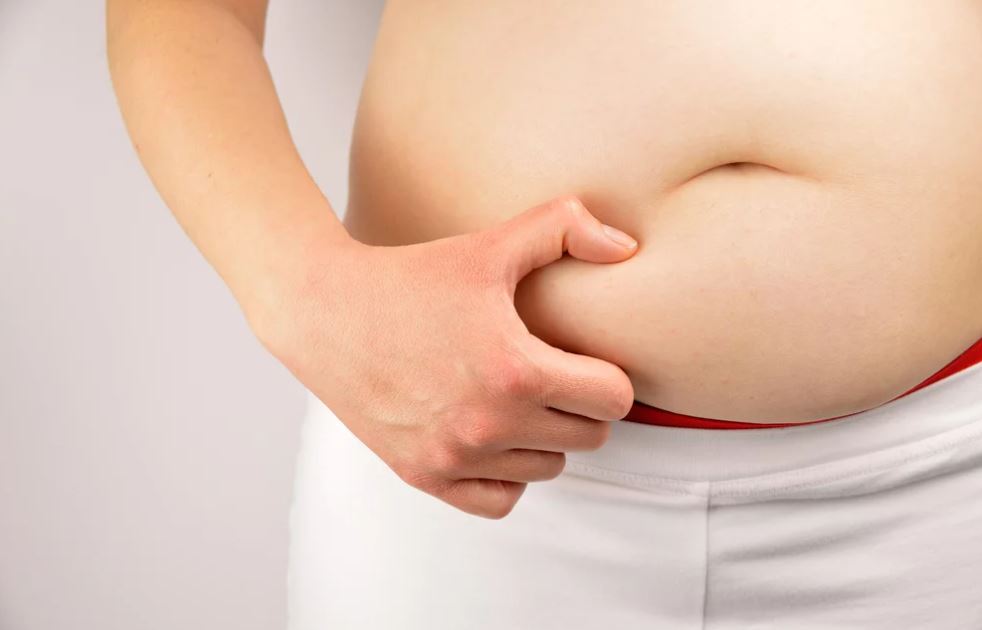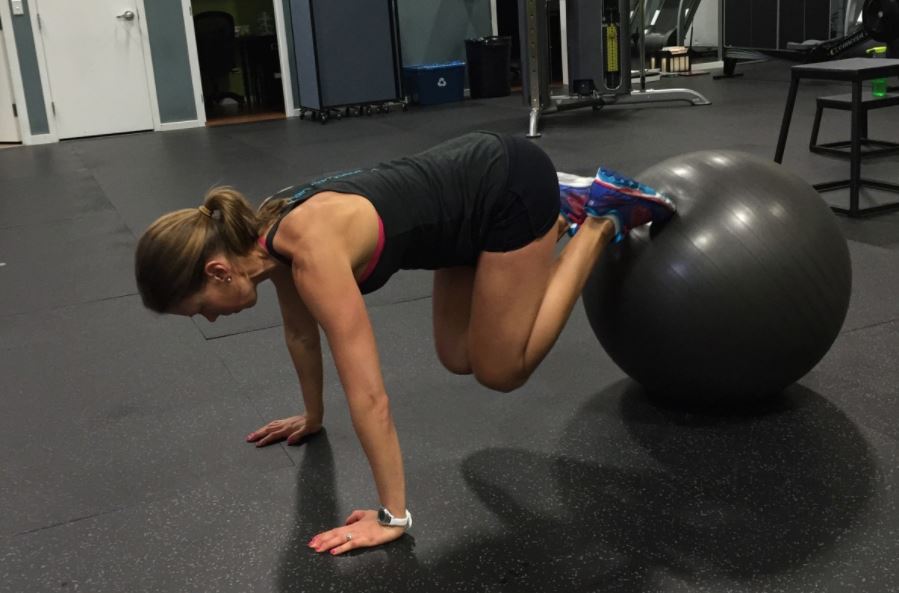The Difference Between Slimming Down and Losing Weight

For most people who want to get in shape, they stick to a strict diet to slim down. Although, when they get on the scales, they discover that they have only lost a couple of pounds. But, after a few days they gain back twice as much. In reality, there is a big difference between slimming down and losing weight.
The difference between slimming down and losing weight
First, it is necessary to make a distinction between losing weight and losing fat. A person’s weight refers to a whole, that is, body fat, muscle, bone structure and organs.
When starting a diet, surely you want to eliminate the excess fat in your body, and not lose muscle weight. Therefore, the correct expression is to lose fat or slim down. When you slim down, you are also eliminating extra body fat that is harmful to your health.

It is possible to slim down without losing weight, because what you lose in fat, you gain in muscle. That is the ideal goal of a good diet in order to get in shape.
Tips to distinguish the difference between slimming down and losing weight
- There are quick fix diets that promise a loss of several pounds in a few days. Actually, what you lose with those diets is not fat, but water and muscle mass. And do not forget that your body needs energy to function day to day.
- In a diet where you deprive yourself of food, your metabolism slows down. Energy is obtained from your muscle mass, not from accumulated fat. When you end the diet, you might experience an unwanted rebound effect; not only do you regain the lost weight, you might actually gain back up to twice the amount.
- In contrast, when you slim down, it shows in your measurements. Maybe your clothes start feeling loose, you start to see inch loss from your waist, and so on. This happens because the extra fat is being eliminated correctly; what is lost is volume, and not weight.
- Another difference between slimming down and losing weight is evident in your energy. When you lose fat mass, your body regains energy as your muscles get stronger.
- On the other hand, if you are losing muscle, your energy will be low and weak. Your body immediately begins to demand the intake of food in order to recover. This usually results in binge eating food rich in saturated fats, sugars and carbohydrates.
Nutrition and Exercise

- Nutrition is the key to slimming down and losing weight. A healthy, balanced diet combined with physical exercise speeds up your metabolism, and generates elimination of body fat.
- The ideal diet plan for getting in shape should include 4 main meals a day, plus 2 snack breaks between meals. By maintaining a stable glycemic level throughout the day, your body feels satisfied with the nutrients it is taking in.
- You should complete your diet with exercise that helps to strengthen your muscles. It is common to lose weight quickly and feel weak; you will feel this way because your excess fat is not being eliminated. A good physical exercise plan is essential to achieve defined, toned, and strong muscles.
- Optimal training is one that combines cardiovascular work. This burns calories, and strength work will tone the muscles. This way, your metabolism speeds up, burning fat and recovering muscle mass, even after exercise.
Long-term goals, slimming down and losing weight
In conclusion, the big difference between slimming down and losing weight gives long-term results. Losing weight quickly is possible by subjecting your body to a poor diet. This generates an unhealthy vicious cycle, which includes nibbling at food, regaining weight, feeling frustrated, and continuing with poor eating habits.
On the other hand, when your body is slimming properly, it gains the energy needed to function well. This translates into feeling good, vigorous, and wanting to exercise. It creates healthy and lasting habits.
Of course, in order to achieve this, you need to feel motivated. Always persevere, and follow the guidance of qualified specialists in the subject.
For most people who want to get in shape, they stick to a strict diet to slim down. Although, when they get on the scales, they discover that they have only lost a couple of pounds. But, after a few days they gain back twice as much. In reality, there is a big difference between slimming down and losing weight.
The difference between slimming down and losing weight
First, it is necessary to make a distinction between losing weight and losing fat. A person’s weight refers to a whole, that is, body fat, muscle, bone structure and organs.
When starting a diet, surely you want to eliminate the excess fat in your body, and not lose muscle weight. Therefore, the correct expression is to lose fat or slim down. When you slim down, you are also eliminating extra body fat that is harmful to your health.

It is possible to slim down without losing weight, because what you lose in fat, you gain in muscle. That is the ideal goal of a good diet in order to get in shape.
Tips to distinguish the difference between slimming down and losing weight
- There are quick fix diets that promise a loss of several pounds in a few days. Actually, what you lose with those diets is not fat, but water and muscle mass. And do not forget that your body needs energy to function day to day.
- In a diet where you deprive yourself of food, your metabolism slows down. Energy is obtained from your muscle mass, not from accumulated fat. When you end the diet, you might experience an unwanted rebound effect; not only do you regain the lost weight, you might actually gain back up to twice the amount.
- In contrast, when you slim down, it shows in your measurements. Maybe your clothes start feeling loose, you start to see inch loss from your waist, and so on. This happens because the extra fat is being eliminated correctly; what is lost is volume, and not weight.
- Another difference between slimming down and losing weight is evident in your energy. When you lose fat mass, your body regains energy as your muscles get stronger.
- On the other hand, if you are losing muscle, your energy will be low and weak. Your body immediately begins to demand the intake of food in order to recover. This usually results in binge eating food rich in saturated fats, sugars and carbohydrates.
Nutrition and Exercise

- Nutrition is the key to slimming down and losing weight. A healthy, balanced diet combined with physical exercise speeds up your metabolism, and generates elimination of body fat.
- The ideal diet plan for getting in shape should include 4 main meals a day, plus 2 snack breaks between meals. By maintaining a stable glycemic level throughout the day, your body feels satisfied with the nutrients it is taking in.
- You should complete your diet with exercise that helps to strengthen your muscles. It is common to lose weight quickly and feel weak; you will feel this way because your excess fat is not being eliminated. A good physical exercise plan is essential to achieve defined, toned, and strong muscles.
- Optimal training is one that combines cardiovascular work. This burns calories, and strength work will tone the muscles. This way, your metabolism speeds up, burning fat and recovering muscle mass, even after exercise.
Long-term goals, slimming down and losing weight
In conclusion, the big difference between slimming down and losing weight gives long-term results. Losing weight quickly is possible by subjecting your body to a poor diet. This generates an unhealthy vicious cycle, which includes nibbling at food, regaining weight, feeling frustrated, and continuing with poor eating habits.
On the other hand, when your body is slimming properly, it gains the energy needed to function well. This translates into feeling good, vigorous, and wanting to exercise. It creates healthy and lasting habits.
Of course, in order to achieve this, you need to feel motivated. Always persevere, and follow the guidance of qualified specialists in the subject.
This text is provided for informational purposes only and does not replace consultation with a professional. If in doubt, consult your specialist.








